Ending Aging Forum 2022
Research & Education
September 2nd - 3rd, 9am – 2:30pm PST
EXVO Virtual Reality Platform
Thank you for a wonderful and thought provoking time with the team at SENS Research Foundation. This virtual event allowed us to share first-hand, the latest advances that our in-house researchers are making toward new rejuvenation biotechnologies, along with some of our young scientists-in-training and outside researchers whose research we fund. In addition to the formal presentations, we enjoyed the opportunity to facilitate one-on-one discussions with the scientists and other members of our team, as well as with citizens, donors, and activists who dream of and work for a future free of degenerative aging.
Breaking down the barriers to attendance, we hosted the virtually through EXVO, a strong platform for this VR experience. The virtual event’s presentations were made in our Conference Hall, along with project-specific Research Booths and booths for scientific posters presented by our students that broke down different research projects.
In the Expo Room, attendees were also able to meet and talk one-on-one or in small groups with the team and other supporters, or watch videos in which our team members and scientists-in-training introduce themselves and what drew them to this Mission.
Stay tuned for upcoming YouTube videos of the presentations to learn and celebrate how far we’ve come, and to catch a glimpse of the future we’re building!
Intramural Speakers

Dr. Amit Sharma
Group Lead, Senescence Immunology Research
Amit received his PhD from the University of Pune for demonstrating microRNA regulation of cytokines and regulation of allergic inflammation. During his postdoctoral research at Stanford University, he demonstrated age-related resistance in the reprogramming of fibroblasts with classical Yamanaka factors. To peruse his interest in aging, he did a second postdoc at the Buck Institute in investigating molecular regulatory pathways involved in genotoxic stress and cellular senescence in invertebrate and mammalian models. He joined SENS Research Foundation as Group Lead in 2019 and his laboratory focuses on developing strategies to harness the immune system in mitigating the deleterious effects of senescent cells.
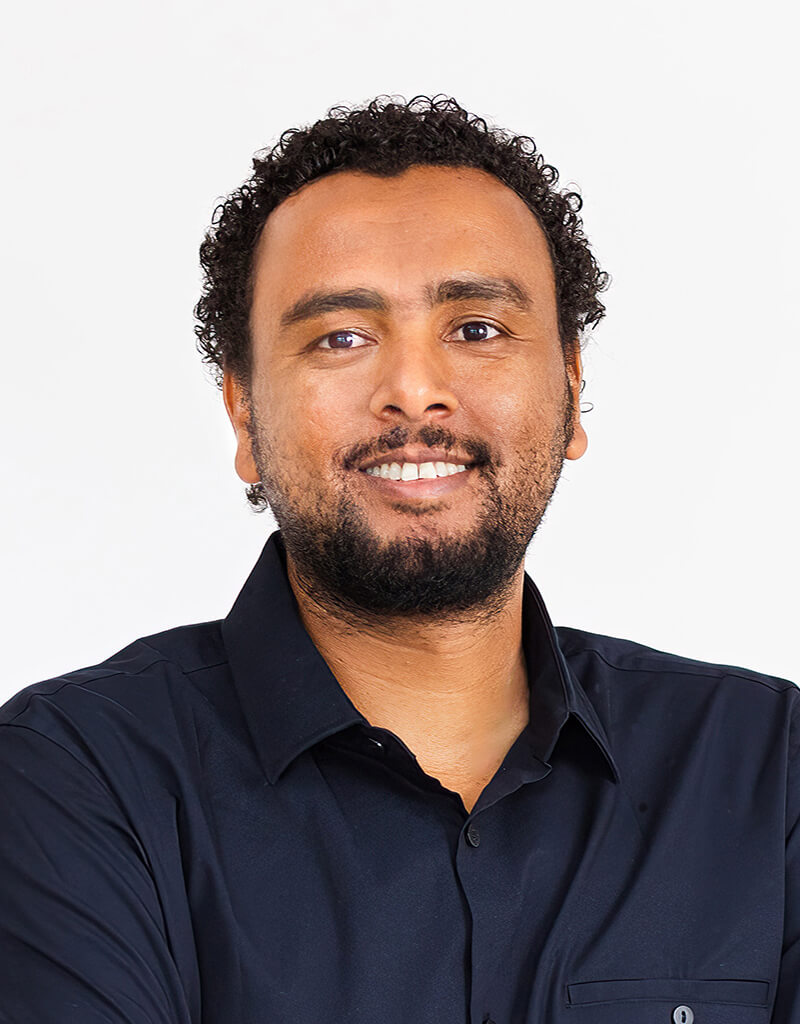
Dr. Tesfahun Admasu
Research Fellow
Dr. Admasu earned his PhD in Biochemistry from national university of Singapore. In his PhD work he investigated interactions between lifespan extending drugs with the aim of engineering synergistic benefits in C. elegans. Dr. Admasu is currently a research fellow at SENS Research Foundation. His research focus on isolation and characterization of secondary senescent cells using surface markers and identification of novel approaches to ablate multiple types of senescent cells. He recently identified a novel senolytic approach to kill multiple types of senescent cells.
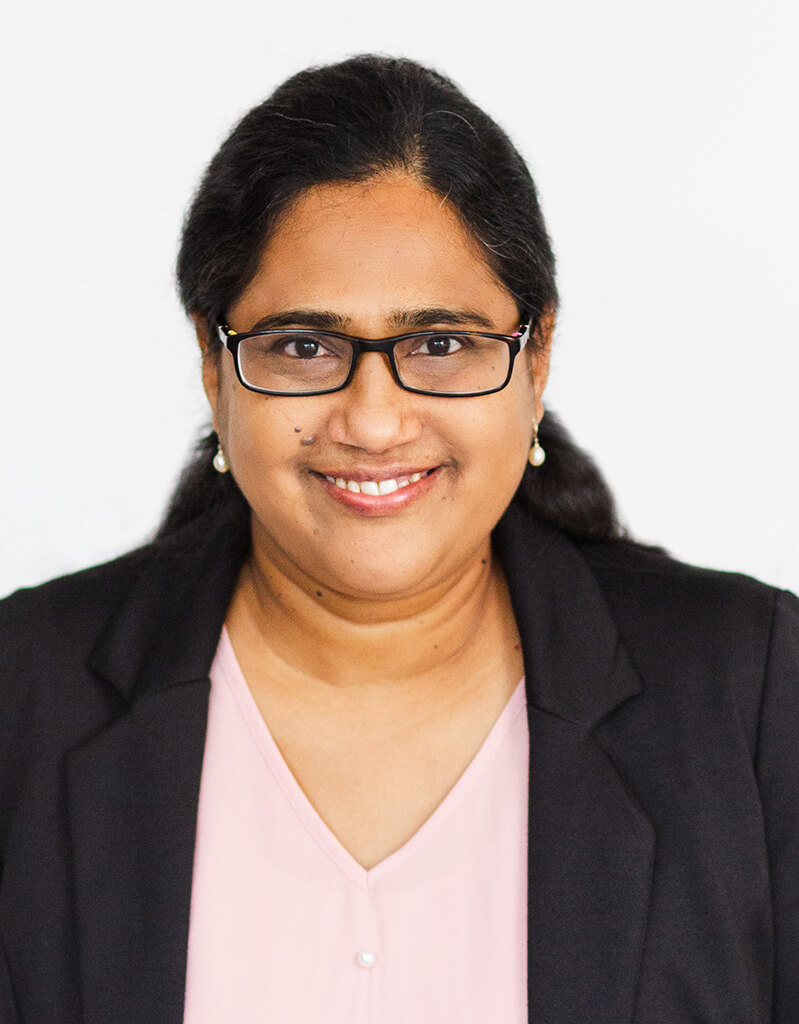
Dr. Amutha Boominathan
Group Lead, MitoSENS
Dr. Amutha Boominathan is the Group Lead for the MitoSENS program at SENS Research Foundation. She joined the organization in 2013 as a Senior Research Scientist and became the Group Lead for the program in 2016. She has a PhD in Biochemistry and has over 22 years of experience in mitochondria biology.
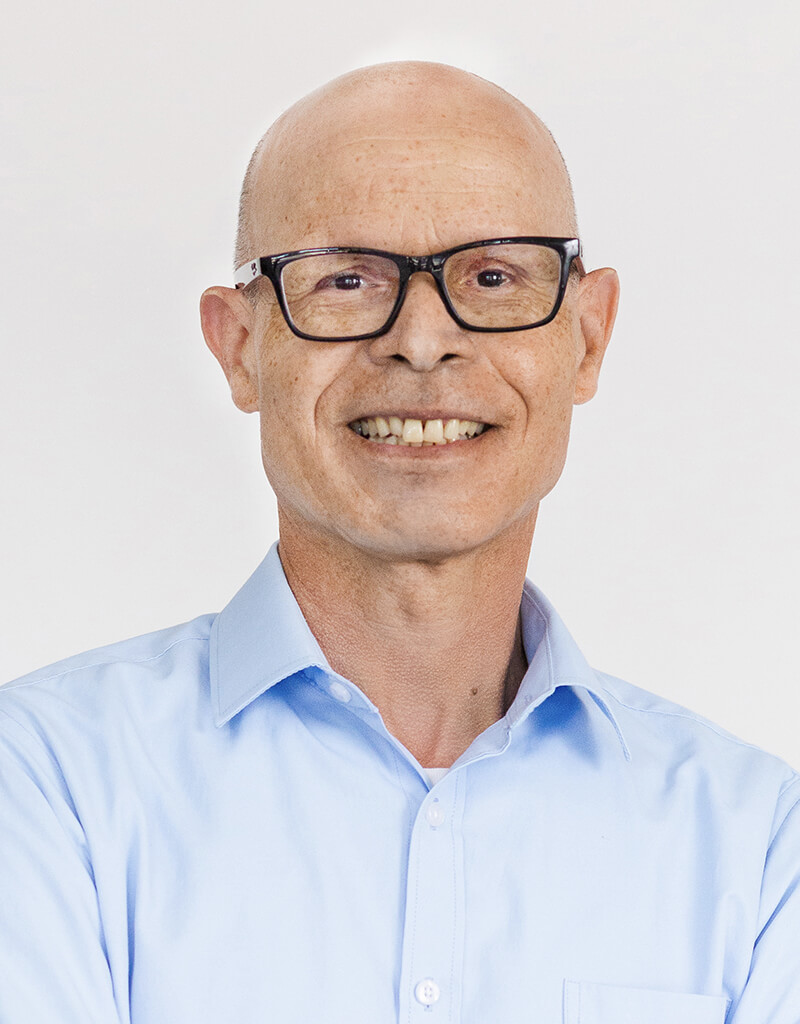
Dr. Abdelhadi Rebbaa
Group Lead, RepleniSENS
Dr. Rebbaa received his PhD from Claude Bernard University, Lyon, France, and held research and faculty positions at Northwestern University, the University of Pittsburgh and Columbia University. Over the course of his career, his research encompassed target and drug discovery and development in the fields of cancer, stem cells and aging. Recently, he oversaw the discovery and preclinical testing of small molecule senolytics and biomarkers of aging.
Dr. Rebbaa served as a Principal Investigator on multiple grants, published over 40 manuscripts and reviewed manuscripts in respected scientific journals. He is currently applying the acquired experience to study the effect of a combination therapy using senolytics and stem cell transplantation on reducing senescent cell burden and the functional decline caused by aging.
Extramural Speakers
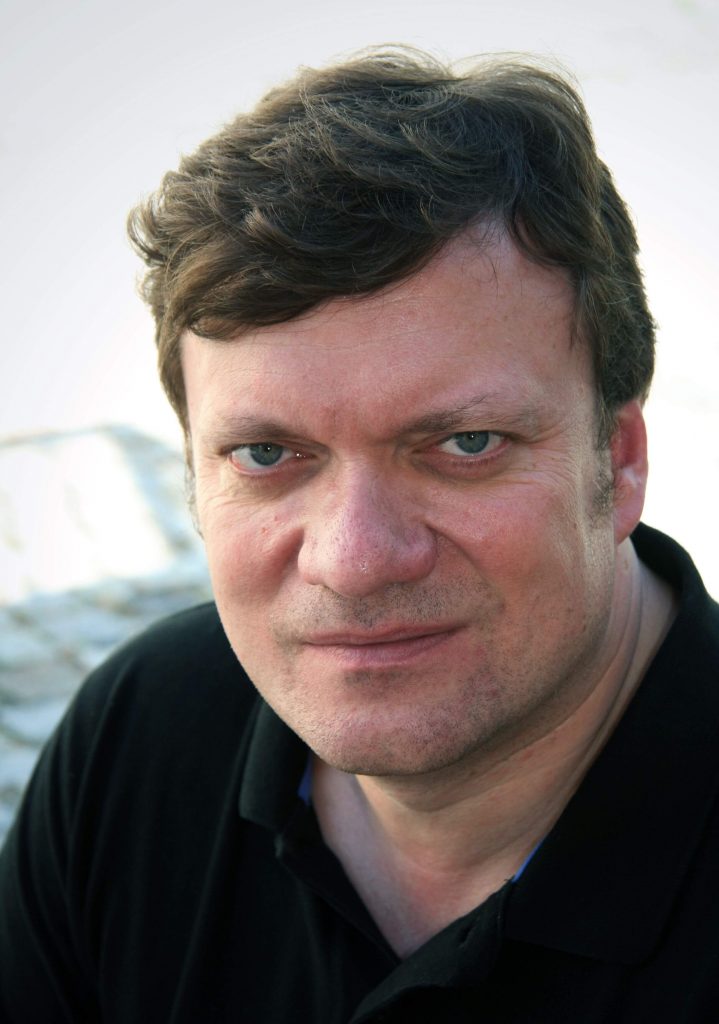
Dr. Tilman Grune
Scientific Director, German Institute of Human Nutrition Potsdam-Rehbruecke (DiFE)
Dr. Grune trained as a biochemist in Moscow. Later he obtained his PhD and D.Sci. at the Charité Berlin. After Post-Doc positions in Berlin and Albany; NY he is heading its own laboratory in Berlin and Düsseldorf. After professorships in Stuttgart and Jena, he is now the Scientific Director of the German Institute of Human Nutrition and the head of the Department of Toxicology. Since 2020 he holds also a position of a professor of Physiological Chemistry and Cellular Biochemistry at the University of Vienna, Austria. His scientific interest is focused on the aging of post-mitotic cells, nutritional effects on aged cells and biomarkers of nutrition, aging and redox status. He is founding Co-Editor- in-Chief of Redox Biology and has published some 450 publications.
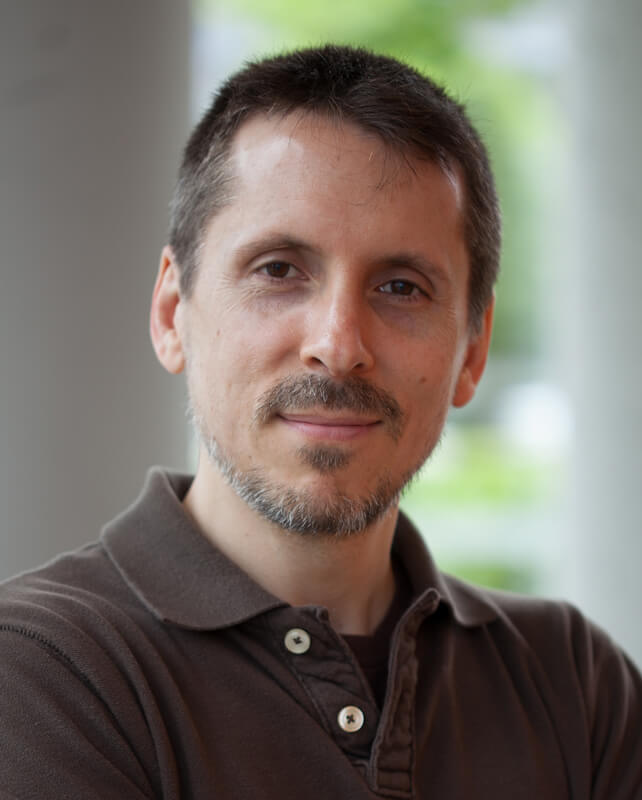
Dr. Jean Hebert
Professor, Dominick P. Purpura Department of Neuroscience, Albert Einstein College of Medicine
Jean trained as a molecular geneticist, obtaining his Ph.D. from the University of California, San Francisco, before specializing in the study of how neural stem cells form the brain at Stanford University. He is now a Professor at the Albert Einstein College of Medicine in New York.
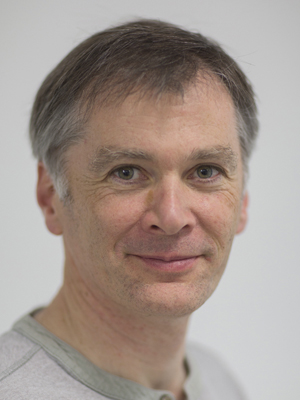
Dr. Jonathan Clark
Head of Biological Chemistry Facility, Babraham Institute, Cambridge
Jonathan studied Biological Chemistry at the University of Leicester and then obtained a PhD in new synthetic methods towards the synthesis of Taxol. He then spent 11 years working in the biotechnology sector around Cambridge, UK before joining the Babraham Institute where he now runs the Biological Chemistry group. His group has been studying the ageing of collagen with the aim of understanding how chemical changes which occur in collagen with age impact function.
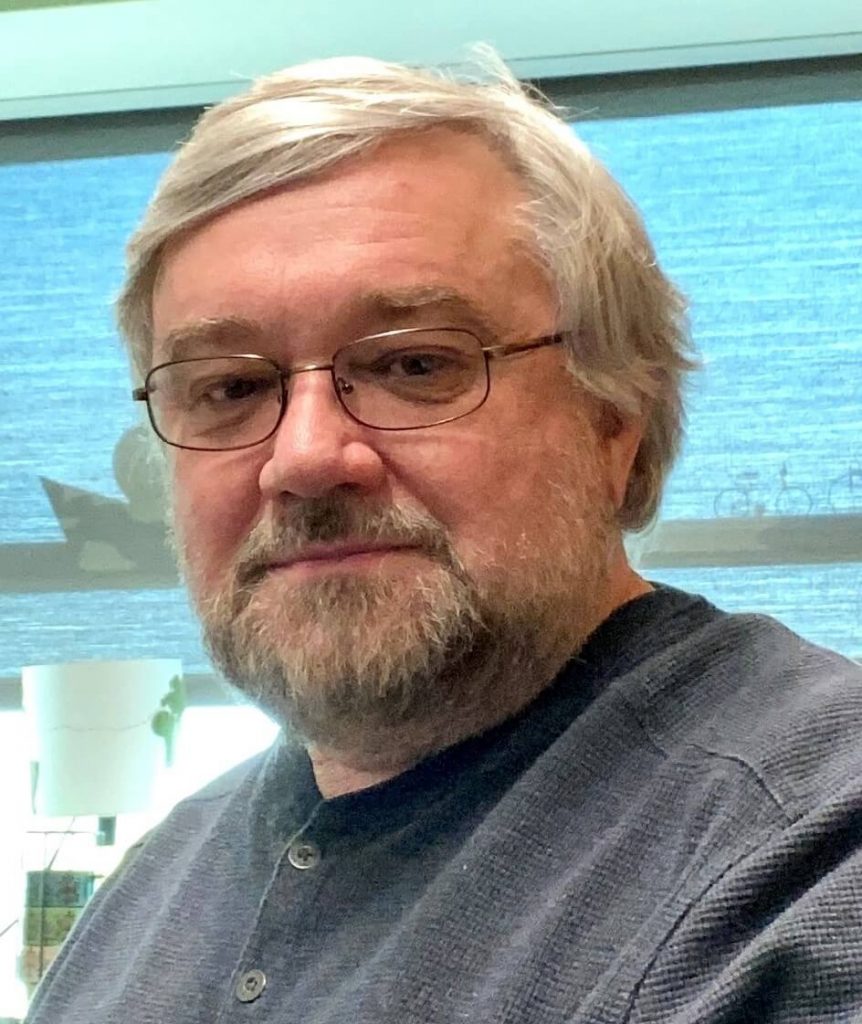
Dr. Andrei V. Gudkov
Garman Family Chair in Cell Stress Biology, Roswell Park Comprehensive Cancer Center
Dr. Gudkov obtained his Ph.D. and D.Sci. degrees in Moscow, USSR. Since 1990, works in the US: first, at University of Illinois at Chicago, then in Cleveland Clinic and, since 2007, at his current position of Sr.VP, Professor of Oncology and Chair of Department of Cell Stress Biology at Roswell Park Comprehensive Cancer Center in Buffalo, New York. His interests involve anti-cancer and anti-aging research, radiation biology, virology and mechanisms of inflammation. He published >250 papers, serves on editorial boards of Aging, Oncogene, Oncotarget (Co-Editor-in Chief), etc., and founded several biotech companies that develop anticancer and anti-aging drugs based on his inventions.
Students Presenting Posters
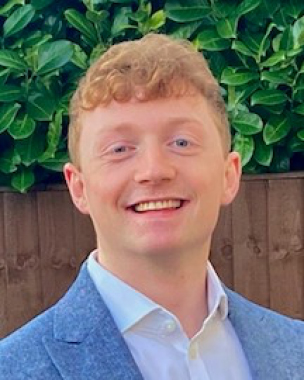
Oliver Frost
Ph.D. Student
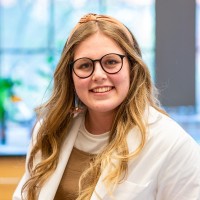
Ashley Brauning
Masters Student

Marek Pinto
Summer Scholar
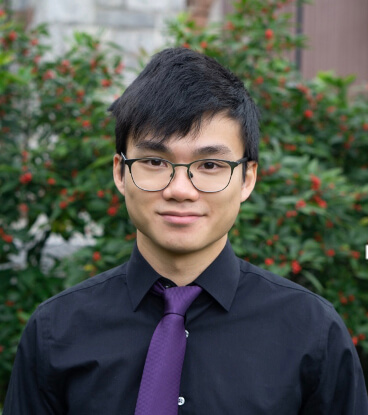
Keefer Li
Summer Scholar
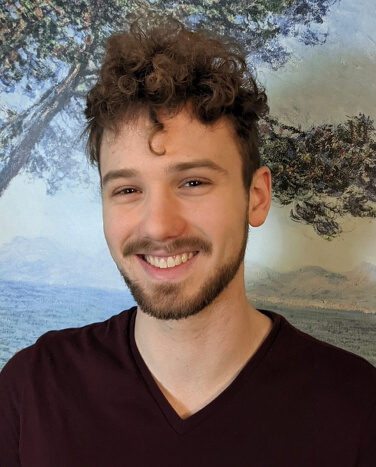
Benjamin Ramsell
Summer Scholar
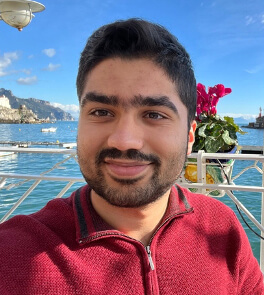
Mustafa Mahmood
Summer Scholar
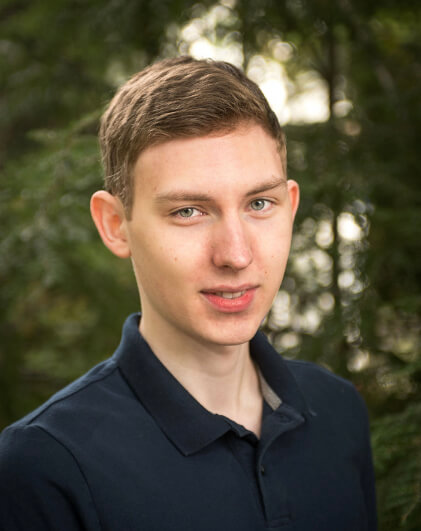
Alec Eames
Summer Scholar
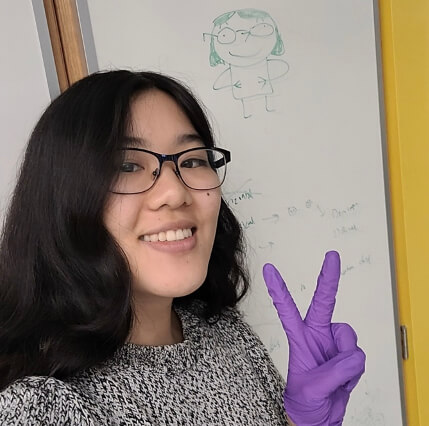
Sheryl Lin
Summer Scholar
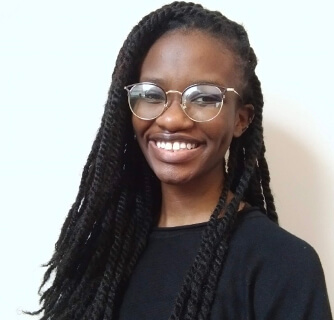
Chinkuli Munkombwe
Summer Scholar
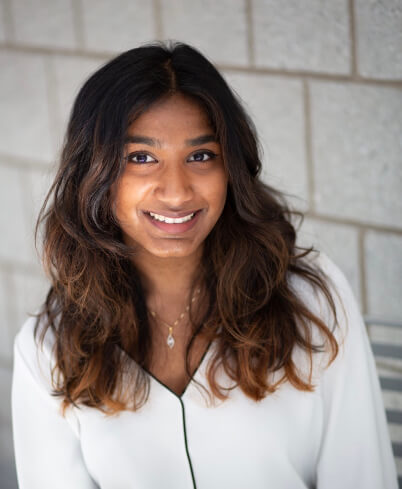
Nikita Sajeev
Summer Scholar
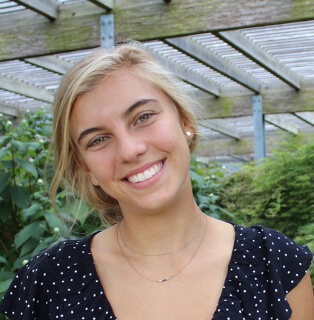
Grace Goetz
Summer Scholar
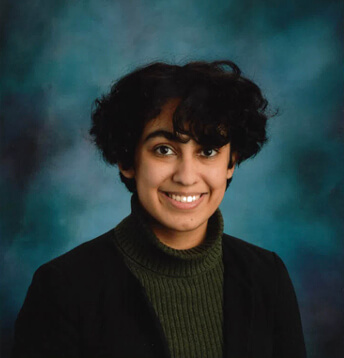
Rushmeen Tariq
Summer Scholar
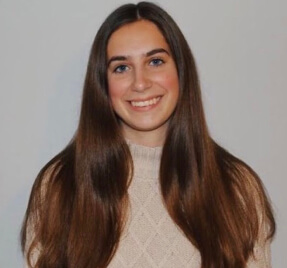
Bronwyn Mogck
Summer Scholar
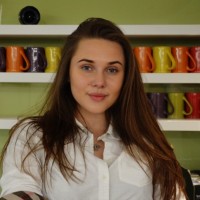
Anastasiia Rudenko
Summer Scholar
Schedule
September 2nd - 3rd, 9am – 2:30pm PST (schedule subject to change prior to the event)
Posters prepared by graduates of our Education programs will be available to view throughout the event.
Friday Sept 2nd: Day 1
9am – 9:30am: Meet & Greet at Conference Hall / Booths Open
Student Booths Featured:- Marek Pinto
- Keefer Li
- Benjamin Ramsell
- Mustafa Mahmood
- Chinkuli Munkombwe
- Nikita Sajeev
9:30am – 10:30am: ApoptoSENS
Dr. Amit Sharma – 1 hour (45 min talk plus 15 min Q+A)
10:30am – 11:30am: Dr. Tilman Grune
1 hour (45 min talk plus 15 min Q+A)
11:30am – Noon: 30-minute break
Student Booths featured:
- Grace Goetz
- Browyn Mogck
- Rushmeen Tariq
- Sheryl Lin
- Oliver Frost
- Ashley Brauning
- Anastasiia Rudenko
Noon – 12:45pm: ApoptoSENS
Dr. Tesfahun Admasu: 45 min (30min talk plus 15 min Q+A)
12:45pm – 1:45pm: Dr. Jean Hebert
1 hour (45 min talk plus 15 min Q+A)
1:45pm – 2:30pm: Booths Open
End of Event Day 1
Sat Sept 3rd: Day 2
9am – 9:30am: Meet & Greet at Conference Hall / Booths Open
Student Booths Featured:- Grace Goetz
- Browyn Mogck
- Rushmeen Tariq
- Sheryl Lin
- Oliver Frost
- Ashley Brauning
- Anastasiia Rudenko
9:30am – 10:30am: MitoSENS
Dr. Amutha Boominathan – 1 hour (45 min talk plus 15 min Q+A)
10:30am – 11:15am: RepleniSENS
Dr. Abdelhadi Rebbaa 45 min (30min talk plus 15 min Q+A)
11:15am – 11:45am: 30-minute break
Student Booths featured:
- Marek Pinto
- Keefer Li
- Benjamin Ramsell
- Mustafa Mahmood
- Alec Eames
- Chinkuli Munkombwe
- Nikita Sajeev
11:45am – 12:45pm: Dr. Jonathan Clark
1 hour (45 min talk plus 15 min Q+A)
12:45pm – 1:45pm: Dr. Andrei Gudkov
1 hour (45 min talk plus 15 min Q+A)
1:45pm – 2:30pm: Networking
End of Event Day 2
Intramural Speakers' Summaries
Dr. Amit Sharma
Eliminating senescence: more ways to kill death resistant cells from novel senolytics to immune based therapeutics.
Many aging pathologies are causally linked to the accumulation of senescent cell burden with increasing age. The senescent cells are characterized by molecular and structural changes culminating in an irreversible cell-cycle arrest and secretion of complex pro-inflammatory senescence-associated secretory phenotype (SASP), which contributes to chronic inflammation and damage to surrounding cells and tissues. Thus, the removal of senescent cells via drugs that selectively kill senescent cells (“senolytic” drugs) to prevent or delay tissue dysfunction has shown great promise in improving age-related pathologies and extending health span.
The research goals of my laboratory are to (A) investigate the cellular mechanisms that cause age-dependent increase in cellular senescence burden and (B) investigate interventions that reduce or eliminate senescent cells.
Several lines of evidence show that Natural Killer (NK) cells play a vital role in the immune surveillance of these cells. Despite these recent studies, therapeutic strategies to exploit NK cells to reduce the senescence burden have not yet emerged. We are investigating mechanisms involving NK cell-mediated targeting of senescent cells to improve NK cell-mediated senotherapeutics for the treatment of aging and inflammatory disorders.
Dr. Tesfahun Admasu
Dissecting primary and secondary senescence to enable novel senotherapeutic strategies.
Senescent cells can spread the senescent phenotype to other cells by secreting factors called the Senescence Associated Secretory Phenotype (SASP). The resulting secondary senescent cells make a significant contribution to the burden of senescent cells accumulation with age. Efforts made to characterize secondary senescence have mostly been unreliable due to their analysis based on mixed populations of senescent and non-senescent cells. Here, we used dipeptidyl peptidase-4 (DPP4) as a surface maker to isolate senescent cells from mixed populations. Using this novel technique, we enriched the percentage of secondary senescent cells from 40% to 85%, which is comparable to senescence induction levels in primary senescent cell cultures. We then used this enriched culture to dissect the molecular and phenotypic differences and similarities between DPP4+ isolated primary and secondary senescent cells. Notably, we found that secondary senescent cells have distinct prosurvival mechanisms and are substantially less susceptible to current senolytics than are primary senescent cells. Finally, we identified a novel and broad- spectrum senolytic approach to ablate both primary and secondary senescent cells.
Dr. Amutha Boominathan
Allotopic expression of mtDNA genes.
Dr. Abdelhadi Rebbaa
Combination of senolytics and stem cell transplantation as a potential anti-aging therapy
The accumulation of damaged/senescent cells in the body with time is a hallmark of aging. Since these cells produce pro-inflammatory and pro-fibrotic molecules, they are believed to contribute to the onset and/or the severity of the chronic diseases that accompany old age. Based on this, the development of strategies to eliminate senescent cells for instance by using senolytics has opened new possibilities for anti-aging therapeutic development. Prior to the discovery of senolytic agents, evidence was provided that local or systemic transplantation of mesenchymal stem cells improve the outcome of various aging associated diseases. Although the underlying mechanism of their action is still not well defined, it is believed to be mediated by paracrine and immunomodulatory effects.
Here we set out to test the hypothesis that the combination of senolytics with mesenchymal stem cell transplantation will have a synergistic effect in extending mouse health span. In vitro and in vivo studies are underway to identify adequate biomarkers and imaging techniques to monitor response to the anti-aging interventions to be tested. We are also conducting cell-based analyses to select a senolytic candidate and to assess the quality and suitability of the MSC cells to be used in in vivo. Finding from this study will allow for evaluating the efficacy of candidate senolytics in reducing senescent cell burden in mice and whether their combination with stem cells will enhance health span of the treated animals.
Extramural Speakers' Summaries
Dr. Tilman Grune
LIpofuscin – an active player in senescent cells and how to get rid of it
Lipofuscin is an aggregate of cross-linked, non-functional proteins and other cellular components accumulating mainly in post-mitotic cells. Many of other studies revealed that it is impairing cellular function and, therefore, contributes to the age-associated functional organ decline. Besides studying the effects of lipofuscin in post-mitotic cells we are in the process of developing strategies to reduce the lipofuscin burden.
Dr. Jean Hebert
Brain cell and tissue replacement as a cornerstone to beating aging.
The neocortex is the part of our brain that performs our highest cognitive functions. In recent years, the mechanisms underlying how stem cells in the embryo generate the neocortex have become better understood. Armed with this knowledge, the Hébert Lab is developing approaches to replace and repair adult neocortical tissue after age-related degeneration.
Dr. Jonathan Clark
A different perspective on the changes in tendon collagen crosslinking with age and the impact on function.
In his presentation Jonathan will discuss and interpret results from his group on the changes in tendon collagen crosslinking with age and the impact on function. In this work it is shown that statements often made about crosslinking and ageing are over simplifications and that the situation is actually more subtle and dynamic than previously recognised. This work suggests that if you are to rejuvenate tendon collagen, that you probably have to tackle the changes at multiple levels and not just remove irreversible crosslinks. Two publications from his group relevant to this presentation can be found at: https://pubmed.ncbi.nlm.nih.gov/32381510/ and https://pubmed.ncbi.nlm.nih.gov/32546479/
Dr. Andrei V. Gudkov
Endogenous “retrobiome” as a putative aging driver.
Nearly half of the human genome is occupied by retrotransposons, highly repetitive interspersed virus-like genetic elements that replicate via reverse transcription. This “retrobiome” is epigenetically repressed in normal cells but is frequently desilenced in cancer cells. In addition to tumors, retrobiome expansion also occurs in aging somatic cells contributing to aging-associated DNA damage and inflammation. Our team isfocused on developing mouse models that would enable testing the role of derepression of retroelements in aging and testing antiaging therapies targeting retrobiome activity.
Student Bios
Oliver Frost
Ph.D. Student from Loughbrough University, hosted by Abdelhadi Rebbaa at SENS Research Foundation
Oliver is a PhD student from the University of Loughborough, a top ten university in the UK. Based in the RepleniSENS team with Dr. Rebbaa, his project focuses on the synergistic effects of senolytics followed by a stem cell transfer to improve health and lifespan in mice.
Ashley Brauning
Masters Student from Dominican University of California, hosted by Amit Sharma at SENS Research Foundation
Ashley received her B.S in Molecular and Cellular Biology from the University of Puget Sound and is currently working on her M.S at Dominican University. She joined SRF in September 2021 as a post-baccalaureate research fellow and graduate student researcher with the ApoptoSENS group using surfaceomics techniques to characterize the surface of senescent cells.
Marek Pinto
Summer Scholar from Boston University, hosted by Amutha Boominathan at SRF
Marek Pinto is a rising sophomore at Boston University studying Biomedical Engineering and Computer Science. Marek is fascinated by the mechanisms behind aging and has been excited to contribute to research through the SRF program this summer!
Keefer Li
Summer Scholar from University of Massachusetts, Amherst, hosted by Amutha Boominthan at SRF
Keefer Li is a junior Biochemistry and Molecular Biology major in the Commonwealth Honors College at the University of Massachusetts Amherst. Keefer has been super excited to spend his summer living and learning with fellow anti-aging enthusiasts in Mountain View, California.
Benjamin Ramsell
Summer Scholar from Oregon State University, hosted by Abdelhadi Rebbaa at SRF
The mechanisms of aging is a field of research that Benjamin Ramsell has been fascinated with since he was twelve. At SRF, he feels that he has the opportunity to study these mechanisms directly and contribute to the development of medical science.
Mustafa Mahmood
Summer Scholar from Siena College, hosted by Abdelhadi Rebbaa at SRF
Mustafa Mahmood is a rising senior majoring in Biology. Mustafa is most excited about getting some hands-on experience in aging research and increasing the breadth of his research experience with the SRF program!
Alec Eames
Summer Scholar from University of Michigan Ann Arbor, hosted by Cyclarity
Alec Eames is a biomedical engineering student at the University of Michigan. Alec is looking forward to contributing to the cutting-edge aging research SRF is conducting in aging biology!
Sheryl Lin
Summer Scholar from Johns Hopkins University, hosted by Aspen Neurosciences
Sheryl Lin is a rising junior studying Molecular and Cellular Biology at Johns Hopkins. Sheryl is thrilled to be contributing to the fight against Parkinson’s Disease and working with cutting-edge autologous neuron replacement therapies at Aspen Neuroscience.
Chinkuli Munkombwe
Summer Scholar from Georgia State University, hosted by Evan Snyder at Sanford Burnham
Chichi Munkombwe is a neuroscience major at Georgia State University. As part of the SRF Summer Scholars Program, Chichi looks forward to learning new methods of tackling the questions in her field and collaborating with other members of her cohort!
Nikita Sajeev
Summer Scholar from Temple University, hosted by Evan Snyder at Sanford Burnham
Nikita Sajeev is currently a senior neuroscience major at Temple University in Philadelphia, though her hometown is Portland, Oregon. Nikita is interested in science communication and clinical care, and hopes to eventually be a physician scientist.
Grace Goetz
Summer Scholar from University of Connecticut, hosted by Evan Snyder at Sanford Burnham
Grace Goetz, is a rising senior at the University of Connecticut. Grace is a biomedical engineering major with a concentration in biomaterials and tissue engineering, and researcher with the Tissue Engineering Sciences and Technology lab on campus.
Rushmeen Tariq
Summer Scholar from University of Utah, hosted by Christopher Wiley at Tufts University
Rushmeen Tariq is a biology major at the University of Utah. Rushmeen has been really excited to do research and explore Boston this summer!
Bronwyn Mogck
Summer Scholar from Villanova University, hosted by Christopher Wiley at Tufts University
Bronwyn Mogck and is a junior at Villanova University double majoring in Biology and Humanities. Bronwyn is interested in looking at the way that lab research leads to changes in everyday lives, and admires the way SRF values communication with the non-scientific community.
Anastasiia Rudenko
Summer Scholar from Pace University, hosted by Jennifer Garrison/Polina Lishko at The Buck Institute for Research on Aging/UC Berkeley
Anastasiia Rudenko comes to us from Kyiv, Ukraine. She is currently majoring in Behavioral Neuroscience with a Minor in Computer Science at Pace University. Anastasiia is excited to aid in developing a new level of research opportunities in Neurobiology.



